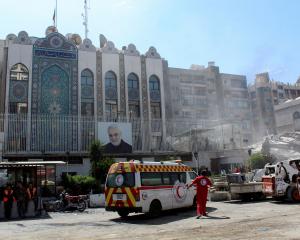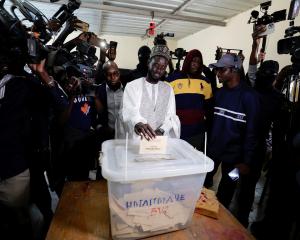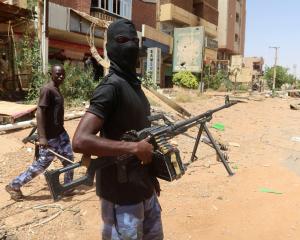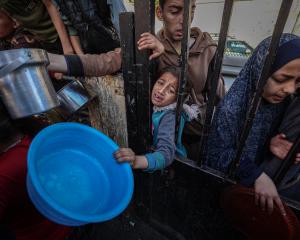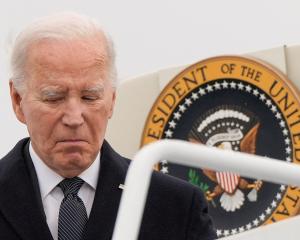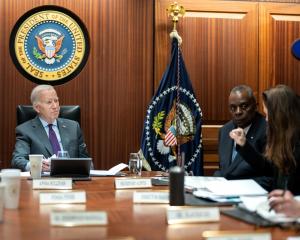How is this for a staunch defence of free speech in a secular state?
Earlier this month, Bangladesh's Prime Minister Sheikh Hasina denounced anyone who criticised religion or expressed their own lack of religious faith in striking terms: "I don't consider such writings as freethinking but filthy words. Why would anyone write such words? It's not at all acceptable if anyone writes against our prophet or other religions.''
So does she mean that it's all right to kill people who write such words?
Hack them to death with machetes, usually?
She didn't say yes, but she didn't exactly say no, either.
And this is regrettable, because quite a few people are being hacked to death in Bangladesh these days.
In the current wave of murders, most of the victims have been "secular'' bloggers who publicly stated they were atheists and offered reasons for their lack of belief.
They did not criticise or mock Islam directly, but merely insisting that religious faith was not necessary or rational was enough to "hurt religious sentiment''.
For some people, it was reason enough to kill them.
Four high-profile secular bloggers were hacked to death in separate attacks in Bangladesh last year, in a campaign of murder that was clearly more than just random incidents of religious rage.
What was remarkable was the response of the Government - or rather, its lack of response.
Prime Minister Hasina leads a country of 160million people that is officially committed to defending the freedoms of speech and belief of citizens of every religion (and of no religion at all).
But while she publicly deplored the murders, she was careful at the same time to insinuate that the bloggers were outrageous people who had in some way deserved to be killed.
She also insisted that these murders were the work of the main opposition party, the Bangladesh Nationalist Party (BNP), or more precisely of its political ally, the Jamaat-e-Islami, the country's largest Islamist party.
She firmly denied that foreign extremist forces such as Islamic State or al Qaeda (which would certainly approve of the killings) were active in the country.
This probably seems to Ms Hasina to be sound, practical politics, in a country where 90% of the population is Muslim.
So while not openly approving of murder, she publicly sympathises with conservative Muslims who think they have the right to live in a society where their beliefs are never publicly questioned.
It's also good politics for her to blame the violence exclusively on the opposition parties, since admitting that foreign Islamists are involved would mean that she was failing in her duty to defend the country.
But the result of her pragmatism and passivity has been a rapid expansion in the range of targets that are coming under attack by the extremists.
On April 23, Prof Rezaul Karim Siddique, who edited a literary magazine and founded a music school - and never blogged about religion at all - was murdered by machete-wielding men as he left his home in the northern city of Rajshahi to go to the university.
He was an observant Muslim, but he was involved in cultural activities which many hardline groups condemn as "un-Islamic''.
The following day, gay rights activist Xulhaz Mannan, editor of a LGBT magazine, and actor Mahbub Rabbi Tonoy were hacked to death in the magazine's offices in the capital, Dhaka.
In other recent violence religious minorities have been attacked: Shia and Ahmadi mosques, Christian priests and Hindus.
(Several of the murdered bloggers belonged to the 10% Hindu minority, and their issue was religious belief in general, not Islam in particular.)
So is Bangladeshi society drifting into the chronic terrorism against minorities of all sorts that afflicts its former ruler, Pakistan?
The answer, unfortunately, is probably yes - and the blame lies mainly with the two women who have polarised Bangladesh's political life for so long.
In theory, at least, Ms Hasina's Awami League represents the ideal of a secular Bangladesh that embraces its minorities, and Khaleda Zia's BNP depends mainly on the support of conservative Sunni Muslims whose ideal society is explicitly Islamic.
Such divisions exist in every Muslim society, but they are made far sharper by the mutual hatred of the two women who have utterly dominated Bangladesh's politics for the past 25 years.
The BNP's alliance with Islamist parties pushes it ever closer to the religious extremists, and Ms Hasina's pandering to conservative Islamic sentiment (in order not to lose devout Muslim voters to the BNP) is taking her party in the same direction.
And Islamic State and al Qaeda definitely are active in the country. Bangladesh is in deep trouble.
- Gwynne Dyer is an independent London journalist.


